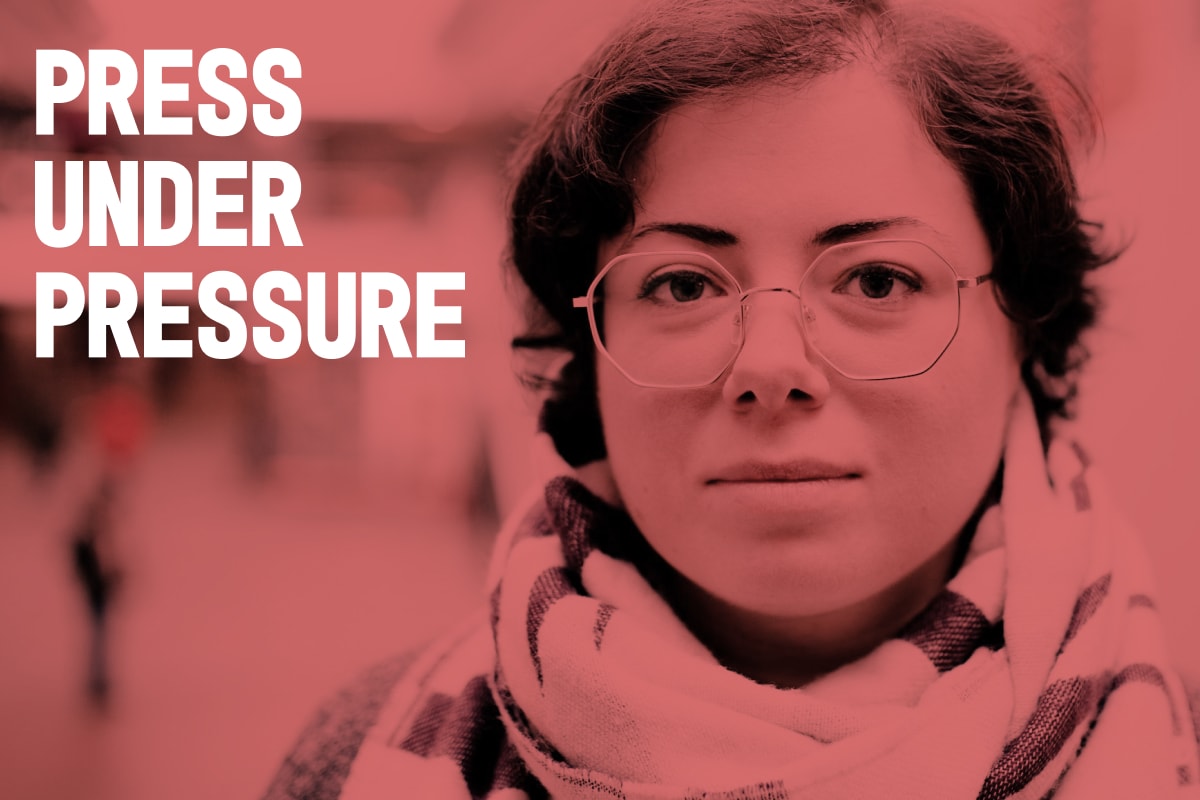
In 2020, journalist Anastasiya Zakharevich was detained twice. She served her term at different prisons: in Minsk, in Zhodzina and in Mogilev.
Due to a threat to her safety she was forced to flee Belarus. Anastasiya is in Latvia now; she was granted political asylum.
The journalist tells about why and how she was detained, what the conditions of detainment were like.
I was detained for the first time on Saturday, 5 September (in 2020 – Ed.), at the Women’s March. I worked as a journalist there and was mostly walking ahead of the crowd. At a certain point I noticed a Belsat journalist together with her camera man were being detained for live streaming from the site of events: a van arrived, some people jumped out of it and threw the journalist and the camera man inside. Women on the March started to bang against the van. A scuffle with the people in civilian clothes started.
The women then continued the March while I headed to the Tsentralny supermarket on some personal errands.
While I was standing near a currency exchange point in the Tsentralny supermarket, a young man wearing a gray sweater and jeans approached me. ‘Give it to me or you’ll be gone for long’, he said. I was appalled by his manners and had no clue as to what this was about. We had a brief conversation during which this man added insults and said I was ‘making a fuss’. But I still had no idea what it was he was trying to get from me.
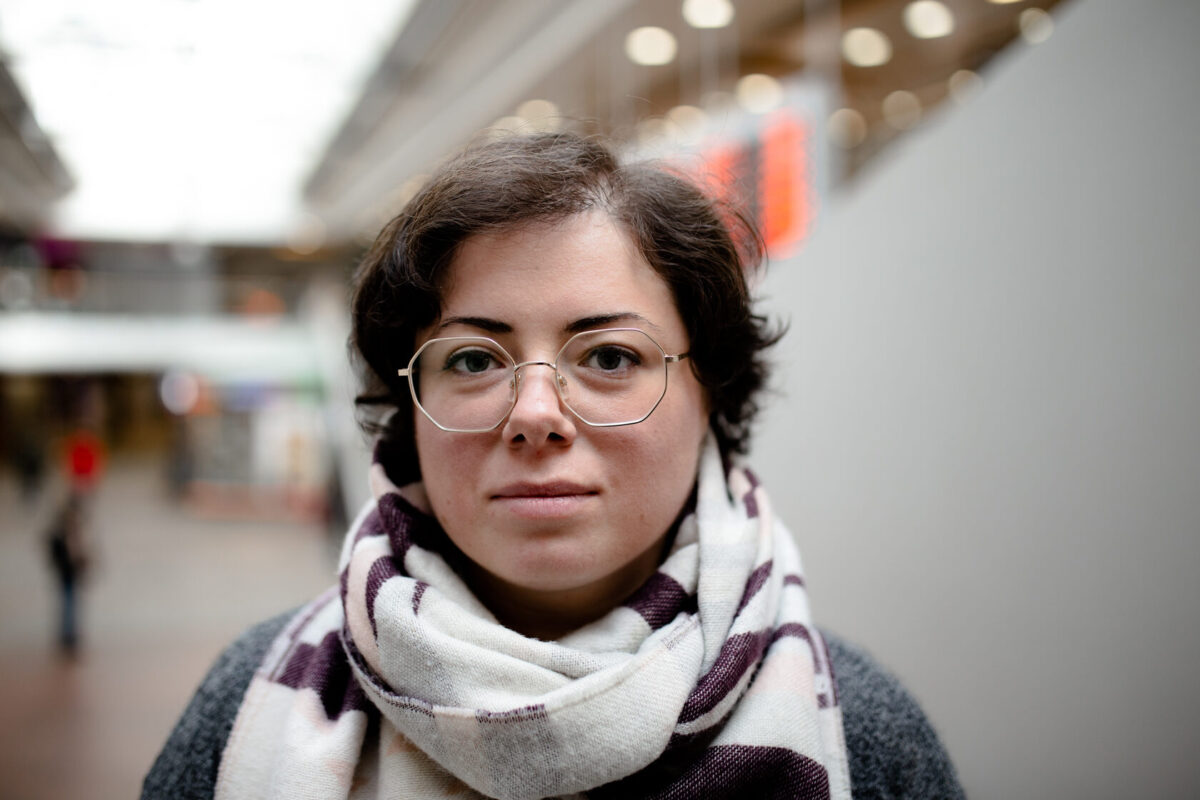
Anastasiya Zakharevich
Then he finally mentioned the Dozor body camera. It turned out that during the scuffle earlier, a body camera disappeared: either the man in civilian clothes dropped it or someone tore it off. This man in grey was certain I had taken the camera and was refusing to return it. But I did not have it, just as I had no idea who did.
The thing is, after the scuffle, there was some woman running around and trying to pass the camera to different people including me. I only had it for a couple of seconds and returned it to that woman. Looks like some of the security officers concluded: since I had the body camera in my hands, I must have taken it.
The man in a grey sweater at the currency exchange point said I had to be inspected. I agreed and suggested we look through all my things right there. He refused and took me to the Tsentralny supermarket security office. He asked the security to call for their superiors. The latter came and was obviously protecting me. He said I was free to go and he would see that nobody followed me. The man in grey responded to that with massive swearing.
He then called his colleagues asking to send a car to pick me. He claimed I stole the body camera, sold it to the Belsat journalists for 50 Euros and then went to the currency exchange point to exchange that money. Funny how this story never appeared in any of the official documents later.
Eventually, they took me to the District Directorate of Internal Affairs, questioned me, inspected and assured me I would be able to go home after the inspection. Yet I only got home in 7 days. I spent more than 30 hours at the District Directorate: they brought me there on Saturday evening and transferred to the detention facility in Akrestsina only on Monday night.
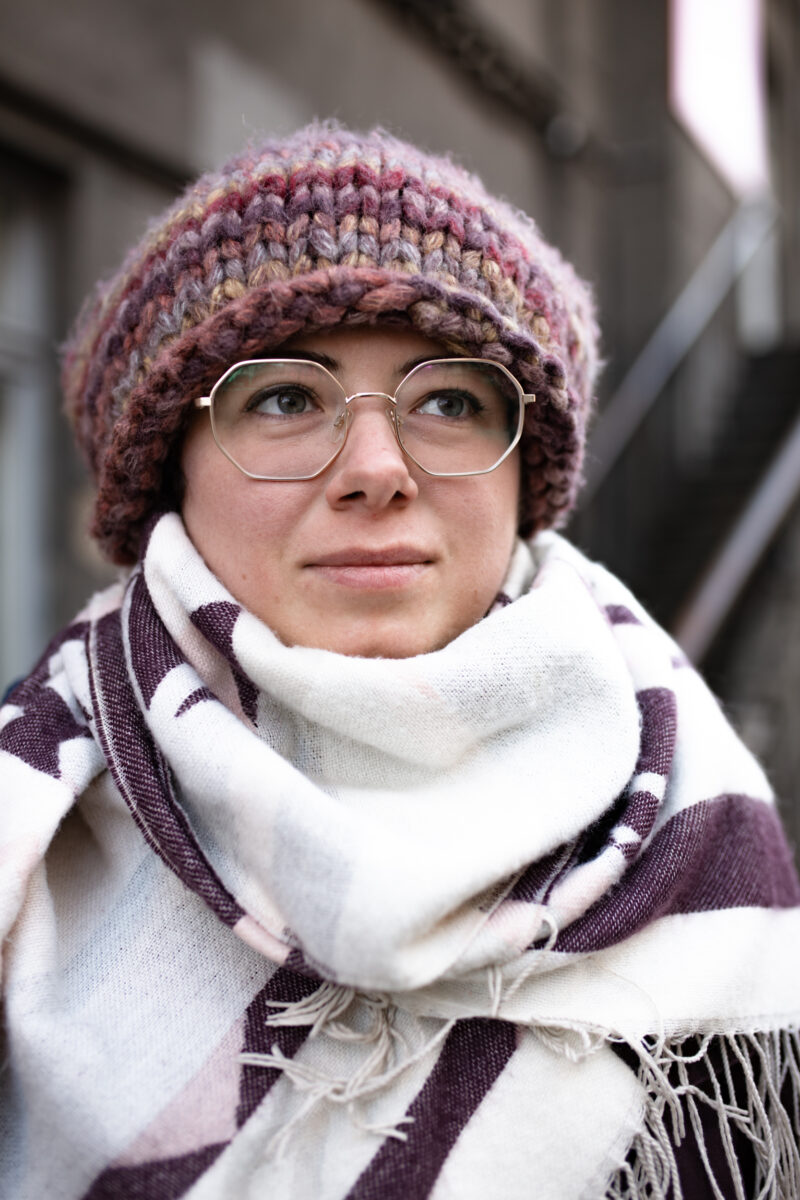
Anastasiya Zakharevich
They initially tried to accuse me of stealing the body camera—detainment was based on the article of the Rules of Criminal Procedure for the suspicion of a criminal offense—but then on Sunday, a ruling was issued not to start a criminal case. They changed my status to a witness in a criminal case against unidentified persons. Which I learned after the fact.
While at the District Directorate, I watched how they brought in hellbenders, filed a protocol for 0.5 base units and released them after two or three hours. And I was locked in a cage like a dangerous criminal.
On Monday, when I was already in Akrestsina, judge Shabunya sentenced me to seven days in prison, part of which I spent in Akrestsina and part in Zhodzina. Upon release, I found out that in the 30 hours I spent at the District Directorate, my parents didn’t know where I was. They were fed inconsistent information that I was not there, that I was there but was released, that I was there but they could not accept a package for me…
My first term fell on rather a light period: packages were passed every day, we were allowed to lie on beds during the day, bed linen and mattresses were given and not taken away later.
After I was released, I returned to work and continued to cover street rallies. And precisely two months after the first detainment, on 5 November, I was detained again at the March of the Disabled.
This detainment was also unusual. At the march, I and other journalists covering the rally noticed there were a lot of officers in civilian clothes. It felt like they were not watching the march, but the journalists.
I left the rally and rang my mother on my way to Kastrychnickaja metro station to tell her where I was and what was happening. I met a journalist I knew and we decided to go together. Vans appeared in the street soon and we moved closer to the buildings. One of the vans stopped close to us, doors opened and black sleeves showed. We rushed inside the nearest door which turned out to be a flower shop. My acquaintance managed to hide, I didn’t. They caught me by my elbows. These men wore black uniforms with riot police insignia but they looked different: some were too short, some too thin, some too well-fed.
I was taken to the Leninsky District Directorate of Internal Affairs. On the way they told me what I was doing with my life was wrong. That journalism, environmental issues, social issues are all nothing; it is important to think about myself and bear children.

Anastasiya Zakharevich
At the District Directorate, it became obvious it was only a stop on the way. No talks or questioning were performed. I was given a prepared protocol—completely false—and was told to sign it. Then they took my shoe laces, made an inventory of my belongings and took me to a cell to wait for a transfer to Akrestsina.
I had bronchitis, a bad cough and felt really bad. I asked for medical help. They responded by asking which article I was detained under. I said charges were not stated but I suspected Article 23.34 of the Administrative Code. They said there was nothing they could do in that case and nobody called for a doctor.
After several hours, I was transferred from the District Directorate to Akrestsina where it took them a really long time to determine where they were to place me, the Offender Isolation Centre or the pre-trial detention centre. The District Directorate administration ordered to take me to the Offender Isolation Centre while the administration on site was placing me at the pre-trial detention centre.
Court hearing took place the next day and lasted longer than an hour. The judge appended to the case everything we asked for with the lawyer; she heard my mother who spoke about my health among other things and that the term might worsen it. Yet despite all that I was sentenced to 15 days of arrest.
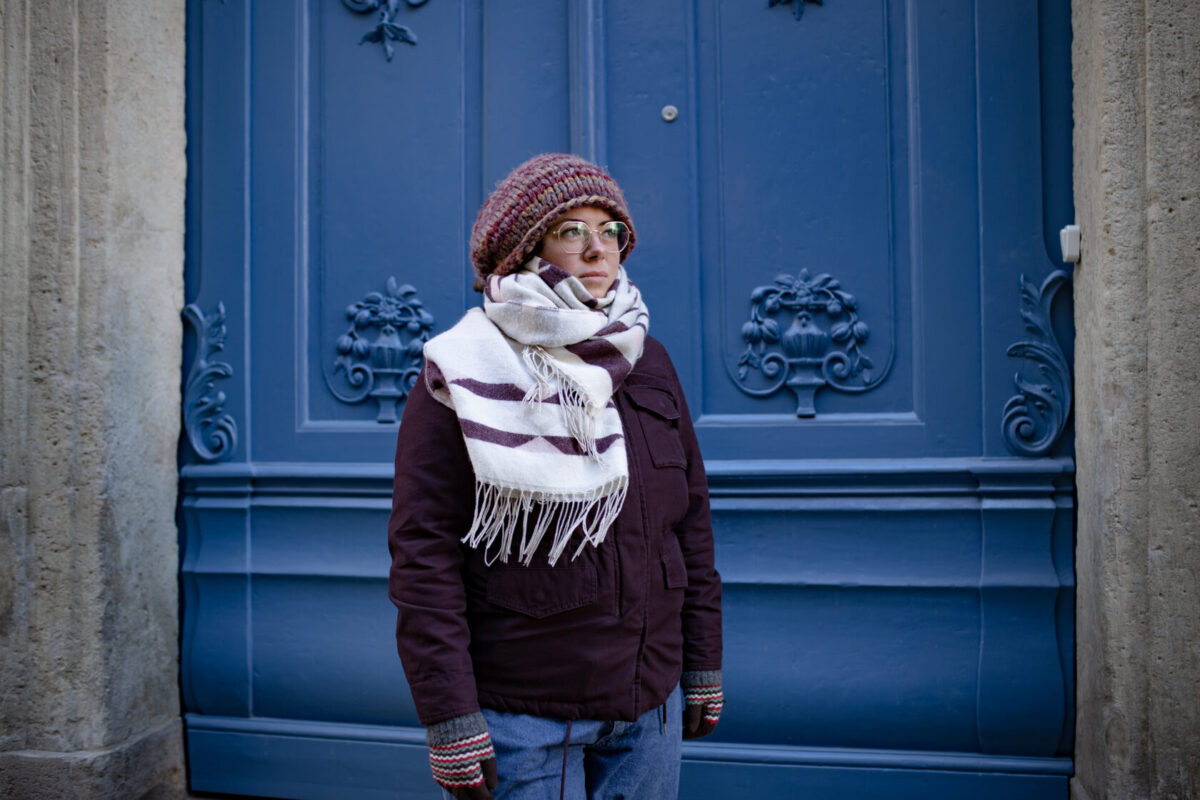
Anastasiya Zakharevich
Some first days I served in Akrestsina, then was transferred to Zhodzina and then to Mahiliou. This time it was a lot harder: there was nothing in the cells, no things, no hygienic items. Only a small bar of soap. For several days we’ve asked to give us toothpaste and hygienic pads. Eventually a guard in a good mood heard us and brought something.
One evening in Akrestsina we decided to sing in our cell. It was a bad idea: we were punished and taken outside to the yard without jackets and threatened to be left there until morning. It was about five degrees outside. I don’t remember how long we stayed outside. Cold and fear erased the sense of time. It might have been half an hour or several hours.
Monday morning we found out we were to be transferred to Zhodzina. The day before, on Sunday, more than a thousand people were detained. We understood something serious happened. They took several people including me from our cell to a strange cell downstairs where we spent until next day waiting to be transferred. There was a feeling that they forgot about us. They didn’t want to feed us.
Then a long and hard transfer to Zhodzina started. There were no walks and we were allowed to shower once. Light was on all the time in the cell, not dimmed even at night. Radio played from six in the morning to ten in the evening. We were lucky to receive packages with a lot of pads and we plastered them on the radio screen to soundproof it.
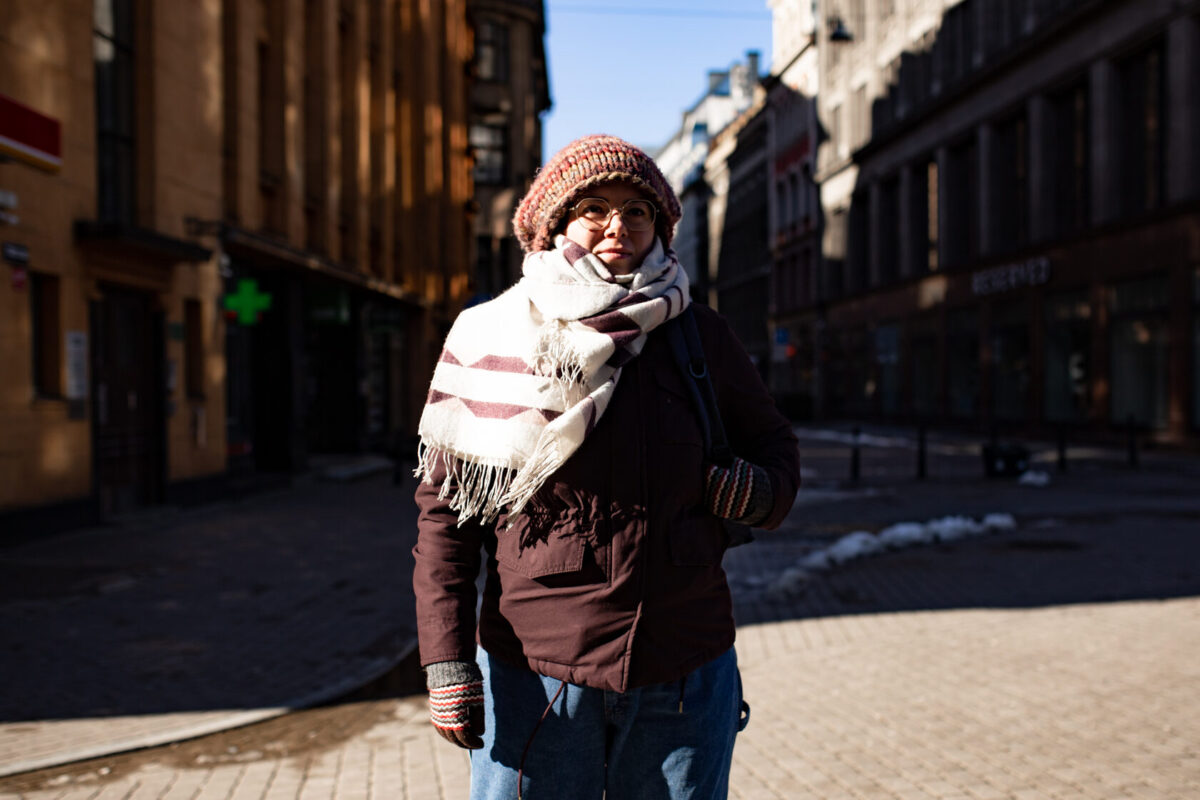
Anastasiya Zakharevich
Then we were transferred to Mahiliou. And it was a shock. We feared our parents would not know where we were. We would be removed from the Zhodzina lists and where would they look for us then? But once in Mahiliou, they brought us through the city. It was a line of several police vans and police cars. Prisoners were distributed among them. And we saw that people noticed us, they waved hands at us, raised hands with victory signs, filmed us. We understood it would soon be on the news and our families would know where we were transferred.
My time at the pre-trial detention centre in Mahiliou was rather fine. It was before the employees received instructions to go hard on the prisoners. So the rest of my 15-day term I spent in more or less normal conditions.
During my second term in prison several persons in my cell developed coronavirus symptoms: they lost the sense of smell, felt bad physically. But they were not isolated. There was a moment when they were offered to go to a hospital, under the condition, though, to return and finish the respective term. That offer made no one feel better.
One woman who had coronavirus asked to leave her a plate, a cup and a spoon to avoid the spread of the infection. But they said it was against the rules. That made it clear that the employees of the detention facility could not care less about the coronavirus.
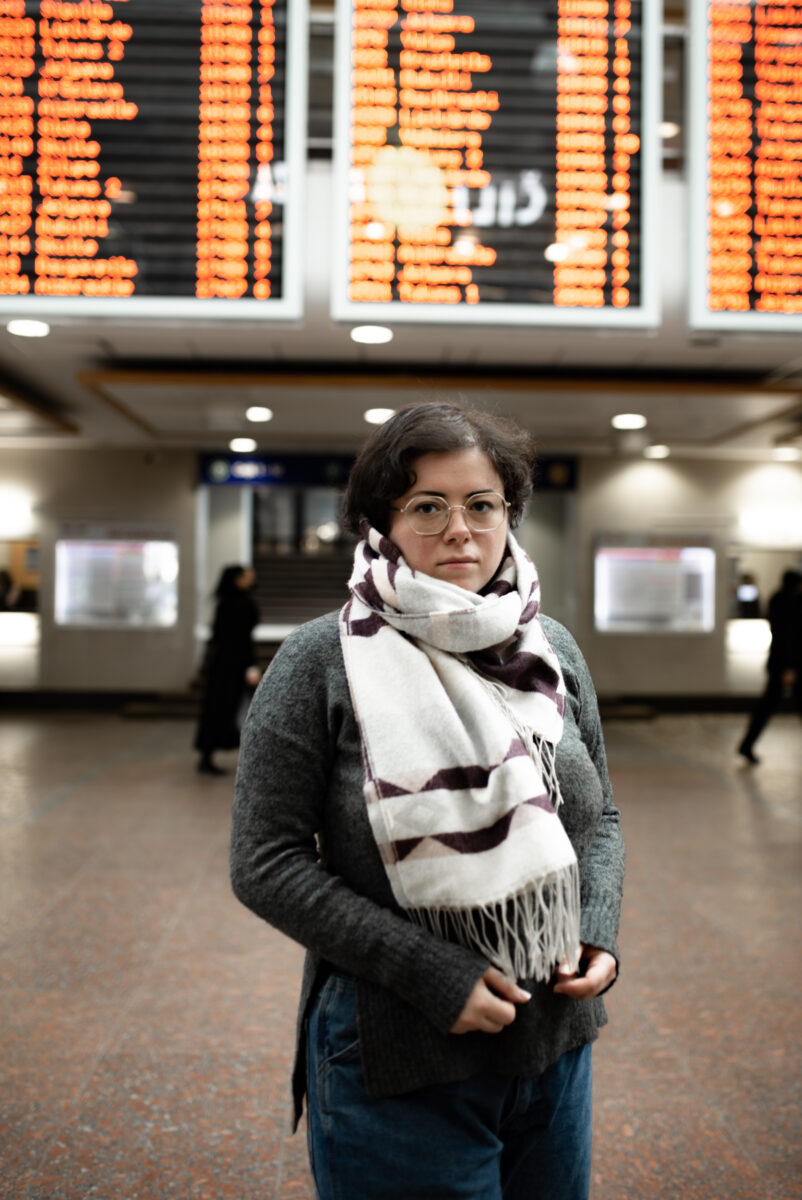
Anastasiya Zakharevich
It was nearly impossible to get any medical help. In Mahiliou, it was only allowed to visit the local medical assistant to measure blood pressure and get an anti-hypertonic tablet. In Zhodzina, an ambulance was called for one of my cell-mates only when she started having an epileptic seizure. Before that, no one responded to her complaints.
I see all that as a deliberate attempt to infect as many people as possible to prevent them from going to rallies in the future. Say, a person serves their term, gets released infected with coronavirus, returns home—and the whole family immediately gets under quarantine. And I can’t find any other logical explanation to such an attitude to coronavirus.
It got to me after I was released. I was crushed both morally and physically. I was afraid to go outside, I was afraid of everything.
After a while I received a call from a blocked number. I didn’t answer. Several minutes after that, my father’s wife called me and said she received a call from the Investigative Committee and they were looking for me. They asked for my contact number. It seemed very strange: they had all my contacts, all the protocols contained my data. As well as in the criminal case in which I am a witness. This call from the Committee looked like an attempt to intimidate, to show they could get me if they needed to.
That was the moment it became clear I should leave the country, for there was a threat of a full criminal term, not administrative. Journalists Daria Chultsova, Katerina Andreeva, Katerina Borisevich had already been imprisoned at the time.
I took the opportunity to leave to Latvia under the rehabilitation programme. Upon conclusion of the programme I made a decision to apply for political asylum there. I don’t know when I will be able to return to Belarus…
Terms and conditions
Partial or full reprint is permitted subject to following terms of use.
An active direct hyperlink to the original publication is required. The link must be placed in the header of the reprinted material, in the lead or the first paragraph.
Reprints, whether in full or in part, must not make changes to the text, titles, or copyrighted photographs.
When reprinting materials from this page, attribution must be given to the Press Club Belarus “Press under Pressure” project, collecting evidence of repression against independent media and journalists in Belarus.